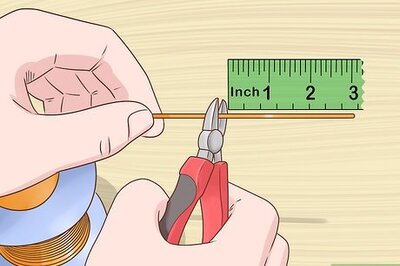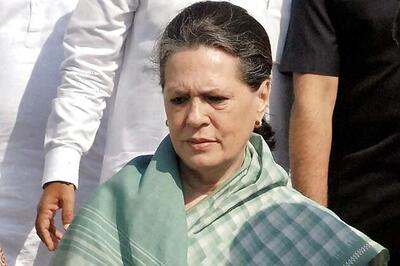
views
The third edition of Central University Entrance Test – Undergraduate (CUET-UG) for admission to central universities will see a slew of changes in its exam schedule for a smooth and swift run to avoid the delays that marked last year’s exercise.
The CUET-UG will be held between May 15 and May 31 this year, the National Testing Agency (NTA), which conducts the exam across the country, had announced earlier this year. Applications for the same opened on February 27 and the last date for submitting them will be March 26.
With record applications last year, CUET-UG became the second largest entrance exam in India after NEET (National Eligibility-cum-Entrance Test), which is conducted for admission to medical colleges.
According to University Grants Commission (UGC), the higher education regulator, so far 46 central universities, 32 state universities, 20 deemed-to-be-universities, 98 private universities and 6 government institutions have registered for accepting CUET-UG scores for their admission to under-graduate (UG) programmes.
OMR Mode For Papers With High Registrations
“More are joining,” said UGC chief Prof M Jagadesh Kumar, adding, “this year, since we will conduct this CUET-UG in hybrid mode, all papers with large registrations will be conducted in OMR mode (pen and paper mode). This will help us use schools and colleges as test centres instead of looking for only computer centres. Therefore, it is not likely to be difficult to arrange test centres nationwide, which had been an issue earlier.”
Since the launch of CUET-UG, it has been conducted in ‘Computer-Based Test’ (CBT) mode. This is the first time since the entrance exam was rolled out that it will be conducted in both pen and paper as well as computer-based mode.
“For all the papers with fewer registrations, we will use the CBT mode,” he added.
According to NTA officials, this year, it won’t be a problem identifying test centres, as they already have the list of centres where NEET is conducted every year.
Last year, the results of the exam were announced in July, which the NTA said, will most likely be done by June this year.
Glitches in First, Delays Marred Second Edition
The first edition of CUET was marred by both technical and administrative glitches that had prompted the NTA to cancel the exam and reschedule it later at multiple occasions.
Last year, though better prepared to handle technical glitches, the exam was held in seven phases and was delayed by more than a week, against its given schedule, to accommodate all the registered applicants. This was mainly because it was difficult to identify test centres in several parts of the country, which had to be computer-equipped facilities for holding the exam, resulting in a long-drawn exercise.
According to NTA data, last year, out of 14.99 lakh students who registered for the exam, 11.16 lakh took the test.
Even as the overall number of applications for the second edition of CUET-UG was an unprecedented 14.99 lakh, Jammu and Kashmir (J&K), Jharkhand and the whole of Northeast together comprised for the highest number of applications for the exam. At least 17.74% of all the students who had applied for the exam were from J&K and Jharkhand alone, prompting issues in identifying accessible and well-equipped test centres. Many candidates in these regions were allotted centres in the nearby cities.
Students Can Attempt Up To Six Papers
“This year, instead of attempting 10 papers, students will be permitted to write a maximum of 6 papers. The rationale behind this decision is that only a tiny percentage of students have opted for ten papers in the last year’s test. However, the scheduling of papers becomes very complex, leading to conducting the test over several days,” said Kumar.
This year, he added, since students can write six papers in different combinations, such as four domain papers, one language paper, one general test paper or three domain papers, two language papers and one general test paper, CUET-UG can be scheduled over fewer days, which is good for the students.
Until now, students were allowed to pick 10 subjects to write the exam, which led to issues such as students having to write multiple exams on a single day without a break, taking a toll on them.
This year, an NTA official said, there will be “sufficient gap” between two papers on the same day for any candidate appearing for more than one subject on the same day. “The exam will be conducted in two or three shifts in a day depending on the number of candidates in a given area like last year,” the official said.
As seen over the last two years, the most popular subjects which have had the highest number of registrations include languages, which is topped by English, followed by Hindu and Urdu. The other popular subjects include biology, economics, accounting, mathematics and history, among others.
‘Trust Your Preparation, Avoid Coaching’: UGC Chief’s Message to Students
In his message to students preparing for CUET-UG, Kumar said, “Focus on consistent, balanced study routines; and prioritise self-care with breaks and relaxation techniques. Remain positive and trust in your preparation.”
Since the launch of the common entrance test for admission to central universities, a large number of students have been opting for private coaching to prepare for the same. A number of coaching centres have started offering CUET-UG prep courses.
However, Kumar said that with consistent study schedules, students can prepare for the test on their own without the need for any external help. “Students need to know their class XII syllabus and concepts to the best while the level of difficulty in the entrance exam is going to be moderate,” he added.




















Comments
0 comment